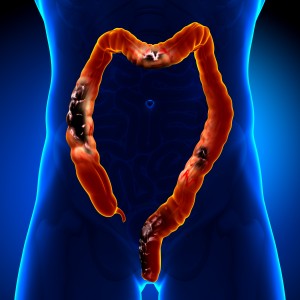 A new study on Colon Cancer revealed a novel player in the development of the disease, a RNA-binding protein Musashi homolog 2 (MSI2). The study entitled “Transformation of the intestinal epithelium by the MSI2 RNA-binding protein” was published in Nature Communications by Shan Wang, first author, Zhengquan Yu and Christopher J. Lengner, co-senior authors, from State Key Laboratories for Agrobiotechnology, College of Biological Sciences, China Agricultural University, Beijing, China, and University of Pennsylvania, Philadelphia, Pennsylvania, along with colleagues.
A new study on Colon Cancer revealed a novel player in the development of the disease, a RNA-binding protein Musashi homolog 2 (MSI2). The study entitled “Transformation of the intestinal epithelium by the MSI2 RNA-binding protein” was published in Nature Communications by Shan Wang, first author, Zhengquan Yu and Christopher J. Lengner, co-senior authors, from State Key Laboratories for Agrobiotechnology, College of Biological Sciences, China Agricultural University, Beijing, China, and University of Pennsylvania, Philadelphia, Pennsylvania, along with colleagues.
Colon cancer is one of the leaders in cancer-related deaths in the world, and increased in numbers from 500,000 deaths in 1990 to 700,000 in 2010. The disease has been intensively studied and researchers have been identifying several genetic mutations that contribute to the disease.
In prior studies, Drs. Christopher J. Lengner and Michael G. Kharas described an RNA binding protein called MSI2 that played a role in sustaining the potency of hematopoietic stem cells, the ability of differentiating into a variety of cell types. Importantly, MSI2 was very active in blood cancers, still unlike other cancer-associated mutated genes the MSI2 gene was not altered in tumors. Instead, the normal unchanged gene becomes strongly activated with cancer progression. The activation of MSI2 RNA-binding protein induced cancer by changing the ability of RNA to make proteins.
The research team performed analyzed RNA transcripts that were abundantly expressed in tissues with tumors but not in normal tissue. They found that highly expressed MSI2 was a constant feature of colon cancer tumors. Moreover, they found that mice without APC, a crucial protein associated with an increase risk of colon cancer, had high levels of MSI2 expression. Further, they used colorectal cancer cell lines to inhibit MSI2 activity and found a strong decrease on tumors growth suggesting that a role of MSI2 on tumor growth. After, they used mice that had over expressed MSI2 in the intestine and observed that the cells of the mice could not differentiate and the animals died in the following 3 or 4 days.
The researchers found that the MSI2-overexpressed mice had RNA transcripts profile similar to mice without APC, but the APC levels were unchanged, suggesting that MSI2 target molecules downstream of APC and on a pathway independent from the Wnt/β-catenin signaling pathway, a crucial oncogenic pathway activated in the absence of APC.
Dr. Lengner said the colorectal cancer dogma for the last 15 years has been that the disease is initiated by the activation of β-catenin due to the absence of APC that leads to deregulated stem cell division.
To understand how MSI2 functioned, Lengner and colleagues analyzed all the MSI2- binding RNA transcripts in the cells that line the intestine. Interestingly, they found that MSI2 was bound to several tumor suppressors, including Pten, a tumor suppressor that when absent leads to tumor development in several tissues. Then they confirmed that MSI2 inhibited Pten and other mechanisms induced the activation of cellular metabolism by a protein complex called mTORC1, which enables cells to generate the needed building blocks to form new cells during cell division.
Dr. Lengner said in colorectal cancer the sustained activation of mTORC1 by MSI2 enables the uncontrolled growth of tumor cells that ends in the generation of aggressive tumors.
Dr. Lengner pointed that existent drugs that target mTORC1 may be used in combination with treatments that target the Wnt/β-catenin pathway to inhibit colorectal cancers progression.
The present findings provide a new target for potential therapeutic intervention in colorectal cancer and increase the knowledge of the complex mechanisms of initiation and progression in cancer. Future studies on MSI2 may also help understand how the disease can relapse after being dormant for years.


